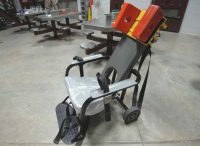Sean Murphy*
Responding to Bronca, T. “A conflict of conscience: What place do physicians’ religious beliefs have in modern medicine.” Canadian Health Care Network, 26 May, 2015.
Tristan Bronca writes, “Belief without evidence is becoming incompatible with scientific sensibilities.”1
This notion might be exemplified by Dr. James Downar. Advocating for physician assisted suicide and euthanasia in Canadian Family Practice, he described himself as “a secular North American who supports individual autonomy, subject only to limitations that are justifiable on the basis of empirically provable facts.”2
Dr. Downar’s “Yes” was opposed by Dr. Edward St. Godard’s “No.”3 Since both are palliative care specialists, their differences on the acceptability of physician assisted suicide and euthanasia are not explained by differences in their clinical experience, but by their different moral or ethical beliefs.
However, neither Dr. Downar’s beliefs nor Dr. St. Godard’s can be justified “on the basis of empirically provable facts.” Nor can Dr. Downar’s support for individual autonomy, since empirical evidence demonstrates the primacy of human dependence and interdependence – not autonomy. Empirical evidence can provide raw material needed for adequate answers to moral or ethical questions, but it cannot answer them. As Dr. McCabe told Tristan Bronca, science is necessary – but not sufficient. Moral decision-making requires more than facts.
And the practice of medicine is an inescapably moral enterprise. Every time they provide a treatment, physicians implicitly concede its goodness; they would not otherwise offer it. This is usually unnoticed because physicians habitually conform to standards of medical practice without adverting to the beliefs underpinning them. Hence, the demand that physicians must not be allowed to act upon beliefs is unacceptable because it is impossible; one cannot act morally without reference to beliefs.
But Tristan Bronca asks specifically about whether or not religious beliefs belong in medical practice in a secular society. On this point, the Supreme Court of Canada is unanimous: “Yes.”
“Everyone has ‘belief’ or ‘faith’ in something, be it atheistic, agnostic or religious,” Mr. Justice Gonthier wrote in Chamberlain v. Surrey School District No. 36. “To construe the ‘secular’ as the realm of the ‘unbelief’ is therefore erroneous.”
“Why,” he asked, “should the religiously informed conscience be placed at a public disadvantage or disqualification? To do so would be to distort liberal principles in an illiberal fashion and would provide only a feeble notion of pluralism.”4
Thus, to argue that a “secular” society excludes religious belief perpetuates an error that contributes significantly to climate of anti-religious intolerance.
Public funding of services is beneficial for patients, but quite distinct from physician obligations. After all, physicians provide many kinds of elective surgery and health services that are not publicly funded, and physicians are not paid for publicly funded services that they do not provide. Besides, our secular society taxes both religious and non-religious believers, so both have equal claims on “public dollars.”

Most important, public funding does not prove that a procedure is morally or ethically acceptable, any more than public funding proves that force-feeding prisoners in Guantanamo Bay is acceptable. Perhaps that point will come up in military proceedings against a navy nurse who refused orders to do so.5
[PDF File]
The Canadian Healthcare Network posted this response in the on-line edition, which is accessible only to health care professionals and managers.
Notes
1. Bronca, T. “A conflict of conscience: What place do physicians’ religious beliefs have in modern medicine.” Canadian Health Care Network, 26 May, 2015 (Accessed 2018-03-07).
2. Downar J. “Is physician-assisted death in anyone’s best interest? – Yes.” Canadian Family Physician, Vol. 61: April, 2015, p. 314-316 (Accessed 2018-03-07).
3. St. Godard E. “Is physician-assisted death in anyone’s best interest? – No.” Canadian Family Physician, Vol. 61: April, 2015, p. 316-318 (Accessed 2018-03-07).
4. Chamberlain v. Surrey School District No. 36 [2002] 4 S.C.R. 710 (SCC), para. 137 (Accessed 2014-08-03). “Madam Justice McLachlin, who wrote the decision of the majority, accepted the reasoning of Mr. Justice Gonthier on this point thus making his the reasoning of all nine judges in relation to the interpretation of ‘secular.’” Benson I.T., “Seeing Through the Secular Illusion” (July 29, 2013). NGTT Deel 54 Supplementum 4, 2013 (Accessed 2018-03-07).
5. Rosenberg C. “Top nursing group backs Navy nurse who wouldn’t force-feed at Guantánamo.” Miami Herald, 19 November, 2014 (Accessed 2018-03-07)